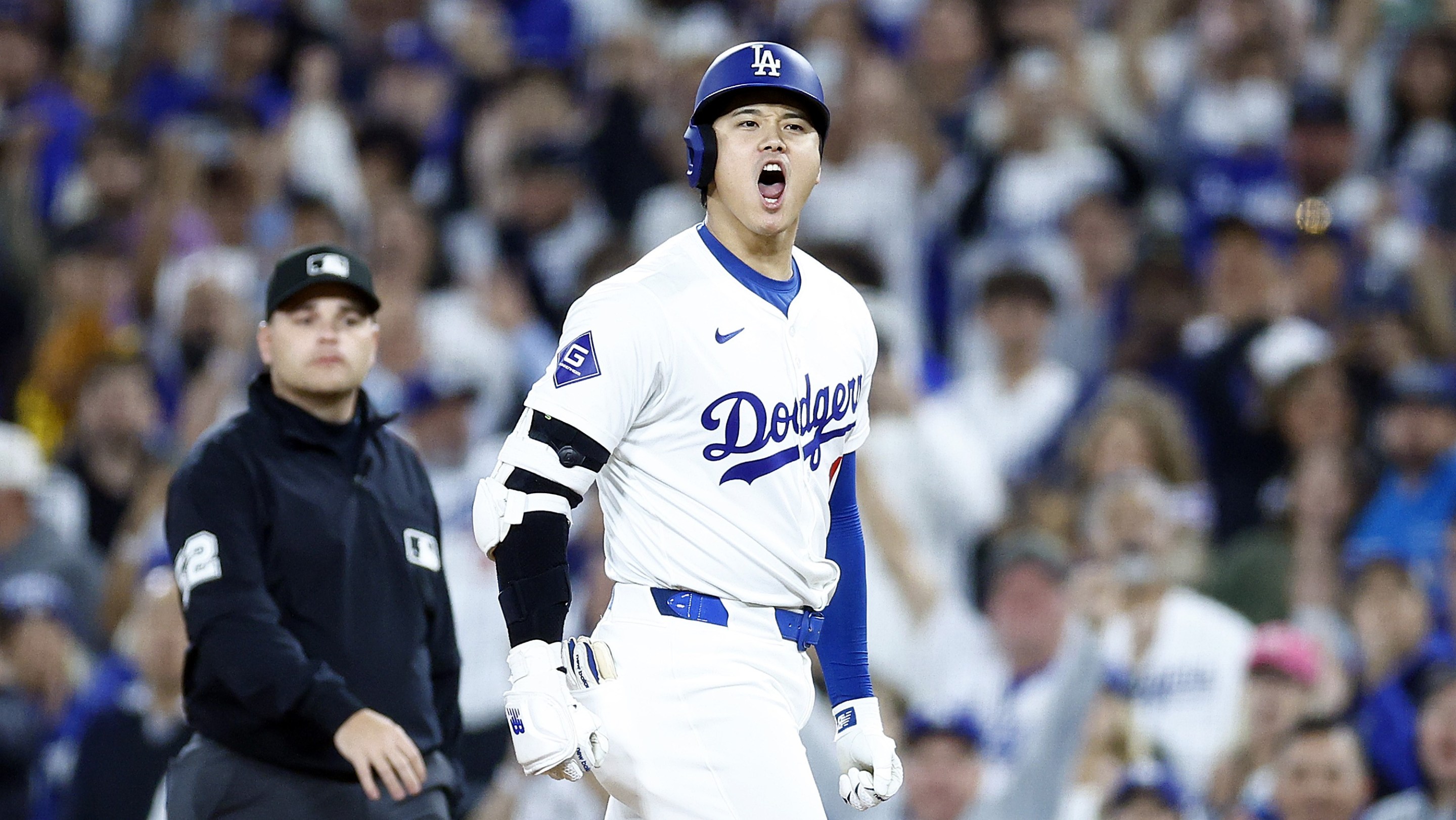The collective agreement on what to do after catching a historic baseball is very fiscally responsible, like a financial literacy course titled "So You Just Won The Lottery." The man who caught Shohei Ohtani's 50/50 home run ball would receive full marks: He declined an initial offer—reportedly $300,000—from the Dodgers and contacted an auction house, Goldin, the next day. Seeing as the current highest bid for the ball sits at $1.2 million with over 16 days to go, it was pragmatic and well-executed, if unsentimental, decision-making. As the seller wished to remain anonymous, the ESPN article on the auction instead quotes Goldin CEO and founder, Ken Goldin, and Goldin seizes upon the opportunity to mete out some uncensored self-advertising: "This is one of those cases where our reputation for getting the absolute highest price on hot-market items [came] into play ... honestly, we had no competition at all."
This is not moral judgment on the man who caught Ohtani's baseball. Imagine being so composed if a house were to fall into your lap; chance would be a fine thing. Ultimately the point of any item of sports memorabilia is to own it or sell it, and to own a baseball of Ohtani's worth is synonymous with being extremely wealthy.
This explains why another fan would file a civil lawsuit in an attempt to have the auction halted, claiming that he had originally possessed the baseball in the scramble for it; perhaps the courts ought to take this opportunity to establish what constitutes a catch in the outfield stands. All of this financial and litigious effort is expended for a baseball that, according to the photograph on Goldin's website is, well, a baseball, with a few defining details. There's a scuff mark stretching from the top of the Rawlings logo to where the seams curve closest to each other, smaller smudges on either side, an MLB authentication sticker.
Of course, no one is bidding on the baseball as some work of art to look at. The value of the baseball is a representation of circumstance: that Ohtani inaugurated the 50/50 club in one of the greatest single-game performances of all-time is part of it, but he also did the kindness of stealing the base before he hit the home run. In the hypothetical where the events were flipped, it's hard to imagine that the baseball would be worth the same. Some amount of retroactive glory would no doubt carry over, but it'd be a 50/49 baseball, and a fan cannot auction off a stolen base.
It is a quirk of the all-encompassing decimal system that 50/50 as a metric matters at all. Ohtani broke the previous equal home runs/steals record when he reached 43/43, but since that was accomplished, the next goal was 50/50. Each matched set he recorded since then had equal value, mathematically speaking. But it can't be helped: Thanks to evolution stumbling into 10 fingers, these groupings are given disproportionate weight. Since 43/43, the goal for viewers was always 50/50.
The way Shohei Ohtani plays baseball gives the impression that he is the only person on the planet who is free of this way of thinking. He has demonstrated time and time again that human convention simply does not apply; though it may make a baseball he hit worth $1.2 million and counting, it cannot touch him.
What Ohtani has accomplished since getting 50/50 is as impressive as the lead-up going into that achievement. That same game, he got 51/51. From that game through to the end of the season, he slashed .628/.667/1.186 over 48 plate appearances. That's 27 hits in 43 at-bats. He hit three more home runs after the historic game, just for good measure. He stole seven more bases because he decided he could—just as he seemingly decided to try for 50 steals midway through the season—and broke Ichiro Suzuki's record for the most steals by a Japanese baseball player. His post-50/50 run includes an unprecedented eight-game stretch of hitting. For a split second, it almost looked like he could steal the batting title away from Luis Arráez and clinch the first triple crown since Miguel Cabrera in 2012. He cooled down enough in the end that he finished second, but he even had the analytics nerds caring about batting average.
Not so long ago there was a case to be made, at least a positional-adjustment-in-WAR case, that Francisco Lindor was a worthy MVP candidate alongside Ohtani. Even then, though, there was a tacit understanding that so long as Ohtani broke 50/50, Lindor would have to accept his WAR crown as a consolation prize. But Ohtani leaves no doubts; his game is not dependent on circumstance. For all that is going on outside of it, Shohei Ohtani will be busy playing baseball.






